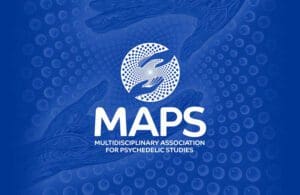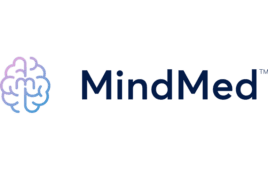 MDMA, the stimulant mood-lifting drug commonly known as ecstasy, could soon transition from party staple to FDA-approved medication — but likely with tight control measures to address its abuse potential and safety risks.
MDMA, the stimulant mood-lifting drug commonly known as ecstasy, could soon transition from party staple to FDA-approved medication — but likely with tight control measures to address its abuse potential and safety risks.
On Tuesday, the nonprofit Multidisciplinary Association for Psychedelic Studies (MAPS) filed an application seeking FDA approval of MDMA-assisted therapy for post-traumatic stress disorder, based on positive phase 3 results demonstrating significant PTSD reductions for most trial participants. In the studies, a significant number of those receiving MDMA-assisted therapy no longer qualified for a PTSD diagnosis after three treatment sessions, with a large majority seeing clinically meaningful improvements.
Currently, the Drug Enforcement Administration (DEA) categorizes MDMA as a Schedule I controlled substance having no approved medical uses, although it is likely to reclassify the stimulant if it receives FDA approval.
MAPS founder Rick Doblin had projected at the start of 2023 that MDMA could win an FDA nod in 2024. FDA typically sets the Prescription Drug User Fee Act (PDUFA) date for six months after accepting a drug’s New Drug Application (NDA) or Biologics License Application (BLA) for review.
While rare, MDMA overdoses can lead to seizures, panic, faintness, and cardiac risks, especially with repeated high doses. A New York Times article from Rachel Nuwer concluded that MDMA is one of the “safer” illegal drugs, but noted that it is associated with risks. In recreational contexts, such risks encompass the potential for adulterants, accidental overdoses due to unknown purity, and serious health complications like hyperthermia and hyponatremia. The also paper noted that some 3,211 MDMA emergency reports were estimated in 2020 in the U.S., citing figures from the Substance Abuse and Mental Health Services Administration (SAMSHA).
Potential REMS dimensions
Should FDA green light therapeutic MDMA, the agency would likely seek to mitigate risks through a comprehensive REMS potentially mandating considerations. The agency has required such programs for other neuro-psychiatric therapies such as esketamine for depression and olanzapine pamoate for schizophrenia. For MDMA, specific safety protocols are likely to consider its unique pharmacological profile and risk factors, which potentially include mental health evaluations, stringent adverse event monitoring and emergency response protocols.
Usage guidelines and restrictions to mitigate overdose risk. FDA may require maximum dose limits and minimum inter-dose intervals in the context of therapy with the aim of preventing unsafe levels of consumption.
Mandated certification and training for providers on safe administration protocols. MDMA may emerge as a unique therapy in that FDA could require healthcare professionals administering it to have specific qualifications and training on proper screening, dosing, monitoring procedures to ensure patient safety. Given reports of investigator misconduct in some MDMA trials, approval of the drug could set a high bar for provider qualifications and training to prevent ethical lapses. The agency may also enforce rigorous oversight and reporting to identify violations requiring intervention.
Limited distribution. Rather than traditional retail pharmacies, MDMA distribution could be restricted to certified medical centers and clinics to reduce diversion risk.
Patient education and informed consent protocols. FDA could require robust informed consent processes to ensure patients understand the psychiatric and physiological risks before receiving MDMA. Such risks could range from potential mood changes, anxiety, depression, and in rare cases, psychosis, to increased heart rate, blood pressure, body temperature, potential kidney failure, and in severe cases, a marked rise in body temperature (hyperthermia) which can lead to deadly consequences. In addition, research has linked heavy MDMA use to lasting effects on memory and learning. FDA thus could consider mandating clear warnings about the cognitive implications of continued exposure, although such risks are likely to be minimal when used in controlled, therapeutic settings.
Adverse event reporting procedures. The REMS could enforce strict tracking and notification of adverse events, especially for rare but serious reactions. The FDA could use data from the program to potentially modify protocols.
Monitoring for signs of misuse and diversion outside medical settings. Given MDMA’s decades-long history as a drug of abuse, FDA could require drug monitoring programs that track non-medical usage patterns.
Cardiac monitoring. FDA draft guidance on psychedelic drugs released earlier this year also raised concerns about evaluating potential valvular heart disease (VHD) risk. Using “psychedelic” as shorthand to encompass agents ranging from MDMA to psilocybin, FDA noted in its guidance that drugs with 5-HT2B receptor agonism should undergo microscopic examination of the heart in animal studies to assess for valve thickening and damage. A REMS could, therefore, potentially mandate ECG assessment for participants receiving repeated doses. Patients with pre-existing heart problems may be contraindicated from receiving MDMA.
Filed Under: Psychiatric/psychotropic drugs



